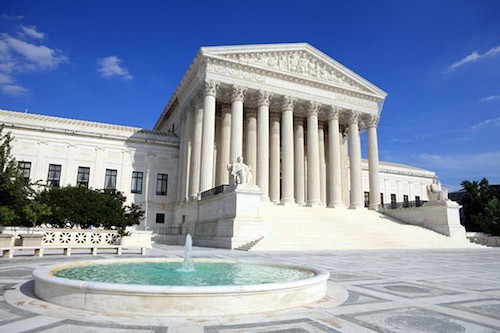Print
this page
Endrew F. v. Douglas County - U.S. Supreme Court Issues Unanimous Decision
with Higher Standards for a Free Appropriate Education (March 22, 2017)
by Peter W. D. Wright, Esq.

On March 22, 2017, the U.S. Supreme Court issued another unanimous ruling in favor of children with special needs and their parents. The full text of that case and the full transcript of the remarks by Chief Justice Roberts when he announced the decision from the bench are located in our 2017 "Year in Review" book which contains all U.S. Court of Appeals and Supreme Court decisions issued in 2017.
Click here for the link to the decision from the U.S. Supreme Court.
Chief Justice Roberts emphasized that full inclusion is the primary standard with the "child progressing smoothly through the regular curriculum." However, if the child is not fully included, then the school officials must look to the child's unique needs to develop an IEP which is "pursuing academic and functional advancement."
The decision is clear. Being fully integrated and making progress in the general education curriculum are the keys. "If a child is not fully integrated, the focus shifts even more to the unique circumstances of the child. The IEP must aim to enable the child to make progress. After all, the essential function of an IEP is to set out a plan for pursuing academic and functional advancement."(Page 11)
Within a week after Endrew F. was issued, the Ninth Circuit in the M.C. v. Antelope Valley case, explained that, "in light of Endrew F., schools must implement an IEP that is reasonably calculated to remediate and, if appropriate, accommodate the child's disabilities so that the child can make progress in the general education curriculum, commensurate with his non-disabled peers, taking into account the child's potential." (Page 20-21) (Emphasis added by Wrightslaw.) This is our favorite, post Endrew F. decision.
Since then, we have learned about two impressive articles that discuss the impact of Endrew F.
In the first one, two Alabama lawyers, Jim and Shane Sears, father and son, published an article in the January, 2018 issue of the Alabama State Bar's magazine.
The United States Supreme Court's Watershed Ruling in Endrew F. and Douglas County School District and the Effect on Your Client's Special Education Programming and is reproduced on our website with permission. It has a focus on the interpretation of "educational benefit" which is a critical issue in the analysis of FAPE.
In the second one, New York attorney, William Moran, published an article in the 2020 edition of the N.Y.U. Journal of Legislation & Public Policy, Volume 22, beginning at page 495 and it is reproducted on our website with permission.
The IDEA Demands More: A Review of FAPE Litigation After Endrew F. contains a comprehensive listing and analysis of cases related to the impact of Endrew F.
Contact information is below:
Jim Sears: 205-588-0755
Shane Sears: 205-989-1709
The Sears Firm, P.C.
The Sears Building
5809 Feldspar Way, Suite 200
Birmingham, AL 35244
searsandsearslaw.com
William Moran
Created: 8/xx/2020

